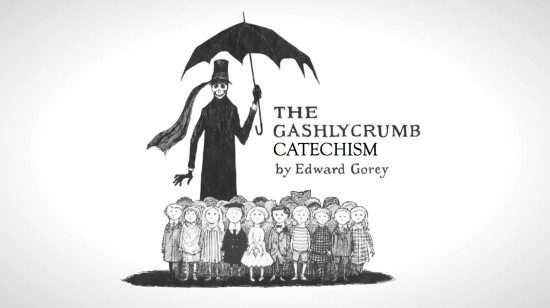I started writing this a while back in response to a long, thoughtful, but ultimately misguided post at Bad Catholic on the problem of human suffering (“An Attempt to Explain Christianity to Atheists In a Manner That Might Not Freak Them Out“).
Bad Catholic’s post is a constructive bit of theologizing, pointing toward profound truths that I wholeheartedly agree with about the incarnation and the crucifixion. I’m totally down with all that Moltmann and Weil stuff. Amen. Preach it brother, as far as that goes.
But the problem is that this is not the problem. Our desire to explain human suffering, or to make sense of what it means, is a problem, but it is never, ever the problem.

Human suffering is not primarily a metaphysical problem. It is also that, and such metaphysical conundrums are immensely important in many ways. But these philosophical and theological dilemmas are always secondary.
The meaning of human suffering is never primarily The Meaning of Human Suffering. The meaning of human suffering is to be relieved.
Hunger, for example, is not a metaphysical problem. It is an acutely, urgently physical problem. The meaning of hunger is not to be found in theodicy or philosophy or mysticism. The meaning of hunger is to be fed.
Why do the hungry suffer? For lack of food. Why do the oppressed and enslaved suffer? For want of liberation.
These are not, primarily, metaphysical puzzles for us to ponder. Such puzzles are also significant, but they mustn’t ever be confused for the most important, most urgent, or most obvious response to human suffering. Human suffering is cause for action — for individual and institutional and structural steps to relieve it and to prevent it.
This, I think, is where that Bad Catholic post goes astray. It frames the matter of human suffering as primarily something to be explained, rather than as something to be addressed. And it goes one step further into abstraction by framing the matter as something to be explained to atheists. That’s fine, as far as it goes, that can be a fascinating conversation. (As to whether BC’s explanation is something atheists will find persuasive, see responses from vorjack and Daniel Fincke.) But such apologetic concerns aren’t even a secondary matter. If we’re going to set about trying to justify The Meaning of Human Suffering, then such justification does not need to be addressed to skeptics but to those humans who are suffering.
This business of theodicy isn’t important for Christians because it may come up in the next debate with Richard Dawkins. It is important because when we encounter people going through misery, horror and pain, we don’t want to add insult to injury by responding with something glib or shallow or stupid.
That Bad Catholic post is not glib, shallow or stupid, and yet, like every primarily metaphysical response to suffering, it still is inadequate. Because, again, suffering is never primarily or exclusively metaphysical.
When it came to human suffering, Jesus always kept his eye on the ball. “For I was hungry and you gave me food,” he said. Not, “For I was hungry, and you gave me an explanation as to how the existence of hunger could be reconciled, philosophically, with belief in an all-powerful and all-loving God.” The latter gift is unlikely to be appreciated unless it accompanies the former.
Hungry people want food. That is the meaning of hunger.
“I was thirsty and you gave me something to drink,” Jesus said. “I was a stranger and you welcomed me. I was naked and you gave me clothing. I was sick and you took care of me. …”
It exposes how far we’ve come from what Jesus was talking about — and how far removed we are from who he was talking about, “the least of these” — that this can strike us as a dodge, as some attempt to evade the question of theodicy and The Meaning of Human Suffering. That’s backwards. For the hungry, the thirsty, the alienated, the naked and the sick, all of our metaphysical thumb-sucking is the evasion. They believe, rightly, that they have the more urgent claim.
“Love is never abstract,” Wendell Berry wrote. And I suppose that is, itself, an abstract statement of an abstract thought. It’s probably not possible to avoid abstractions and theoretical musing about the nature of love or the meaning of suffering. But I think what Berry was saying was that whatever else may be true about all such theories and abstractions, if they are not also made material, then they do not matter.
“If a brother or sister is naked and lacks daily food, and one of you says to them, ‘Go in peace; keep warm and eat your fill,’ and yet you do not supply their bodily needs, what is the good of that?”
“Keep warm and eat your fill,” can be an excellent thing to say to someone who is shivering and hungry. Or it can be a hideous and horrible thing to say to them. The meaning and the value of those words do not depend on the words themselves, but on what the person saying them is doing. If the speaker is, as the epistle of James says, supplying their needs, then those words are meaningful and they go a long way to addressing The Meaning of Human Suffering. But if the speaker is not meeting those needs, then the words are meaningless. If those needs are not met, then any words are meaningless — even the most profound and insightful ruminations on theodicy and metaphysics.
“As Jesus walked along, he saw a man blind from birth,” John’s Gospel says. And his disciples immediately took this as the basis for a metaphysical discussion.
“Rabbi,” they asked, “who sinned, this man or his parents, that he was born blind?” What is the cause of this suffering? What is the meaning of it? Who is to blame? What should we think about this?
Wrong question, Jesus said. The meaning of blindness is this — and he healed the man’s eyes and restored his sight.
The meaning of human suffering is that it be relieved.












